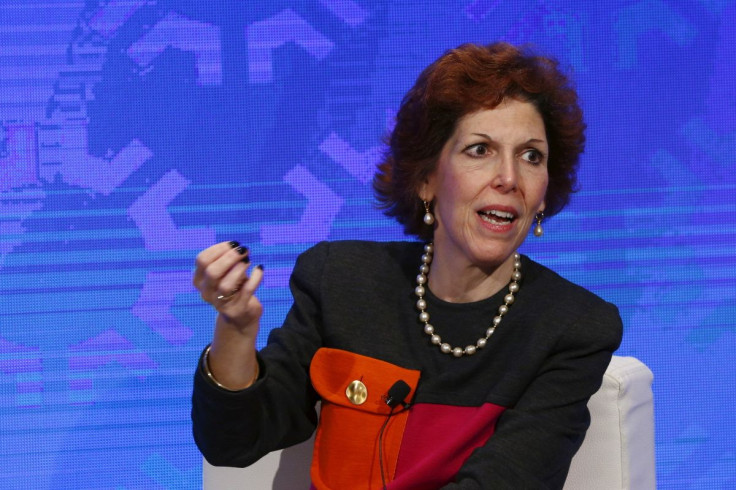Fed's Mester: Some Risk Longer-term Inflation Expectations Continue To Rise

There is risk in the United States that businesses and households could see price pressures persisting for a long time and central bankers must act resolutely to bring inflation down, Cleveland Federal Reserve President Loretta Mester said on Wednesday.
"The fact that the salient prices of gasoline and food remain elevated suggests that there is some risk that longer-term inflation expectations of households and businesses will continue to rise," Mester told the European Central Bank's annual forum in Sintra, Portugal.
"Central banks will need to be resolute and intentional in taking actions to bring inflation down," she said.
Earlier on Wednesday, Mester told CNBC that if economic conditions remain the same, she will push for a 75 basis point interest rate rise at the U.S. central bank's next policy meeting on July 26-27, as the Fed more swiftly tightens financial conditions to curb price pressures running at more than three times its 2% target.
Two weeks ago, the Fed raised its benchmark overnight interest rate by three-quarters of a percentage point - its biggest increase since 1994 - to a range of 1.50% to 1.75%, and signaled its policy rate would rise to 3.4% by the end of this year.
It also flagged its upcoming meeting would bring either a 50 or 75 basis point increase as officials debate how quickly they need to get rates to a level designed to restrict economic activity.
Policymakers cited a poor inflation expectations reading ahead of the last meeting as part of the reason they delivered the bigger-than-expected increase of 75 basis points, amid fears household and business expectations of price increases were drifting further away from the Fed's goal.
In her remarks, Mester cautioned against complacency by central banks globally after years in which inflation struggled to rise above their goals and noted that policymakers' actions are an important element in keeping expectations anchored.
"The more costly error is assuming inflation expectations are anchored when they are not," Mester said.
"Inflation expectations are determined not only by movements in inflation but also by policymakers' actions to follow through on their strongly stated commitment to return inflation to its longer-run goal."
© Copyright Thomson Reuters 2024. All rights reserved.




















